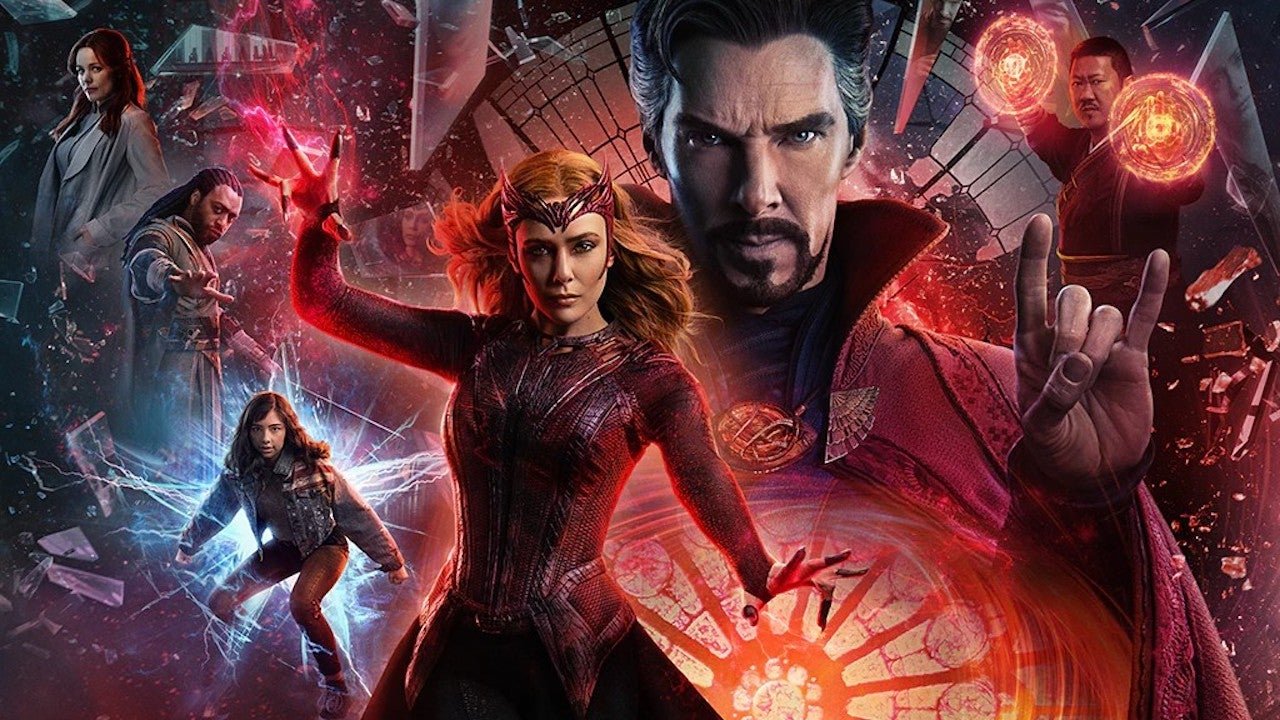Multiverse of Madness Review: A Recommended Mess
Sam Raimi produces the most unique Marvel film to date.
I’m happy to say in an era of the MCU where every film feels similarly cheesy to the point of annoying repetition, a time where the comic book films have a draining spectacle, Sam Raimi’s Doctor Strange in the Multiverse of Madness is a refreshing look into a universe I have grown less and less excited about. With killer entertainment value and a lackluster narrative, this film acts as a positive sign for the MCU moving forward for its creative control given to the director and the sheer spectacle that is enjoyable instead of redundant.
Multiverse of Madness is the pinnacle of style over substance. While I will go on to praise the films visuals and entertainment value momentarily, the MCU’s latest project is not, what I would call, a well told story. Perhaps the biggest problem of this messy Doctor Strange sequel is the hero himself. With a lack of any intriguing character development and a plot that doesn’t support the character’s progression by way of challenging his beliefs or desires, a film with the heroes name in title reduces itself to what feels like an MCU set up movie. With multiple films tackling the multiverse requiring a need for clarification and evolution, it seemed that Marvel ran out of options for characters to explore the multiverse, and as a result turned to the only magical hero left despite the fact they could not weave together a convincing arc with the multiversal setup. Similarly, America Chavez, the newest hero introduced in this film who travels the multiverse without any control of her own powers, is grossly underdeveloped, being reduced to a mcguffin instead of a character. There are traces of interesting developments, but without a strong whole, these bits and pieces feel as though they were phoned in at the last second. The narrative itself is also quite sloppy, with key beats happening by circumstance and coincidence simply because the plot needed some way to move forward, and without any clever ideas, the movie throws whatever it can at the wall to see what partially sticks and runs with it.
However, there is one saving grace for this film’s narrative: the main antagonist. Here, we see Wanda turn into the true Scarlett Witch, a being of anarchy with power so beyond the established MCU that some of the most powerful heroes have no choice but to turn and run. She’s intimidating, but more importantly, she has an interesting story. We saw the beginning of the end for the witch at the end of Wandavision, a finale that had me praying she would become a villain later down the line, and I can safely say my dream came true within Multiverse of Madness. With believable motivation and only somewhat forced development, Wanda feels like the only real character in a film dominated by variants, cameos, and other heroes to bolster the cast. When speaking of Wanda it is impossible to not speak of the fantastic performance given by Elizabeth Olsen. Portraying the tortured witch with a balance of callus and care, Wanda feels layered, unlike many of the other characters.
However, as previously stated, those aspects have little to do with my actual enjoyment of the film. Thanks to Sam Raimi’s excellent directing, I liked this film much more than I thought I would. In fact, this has to be one of the most entertaining MCU films to date; I would easily watch this over three fourths of what Marvel has put out so far. Most significant for my enjoyment, he camera actually moves. The film has a dynamism I never thought I would see in an MCU project, with the opening scene having an abundance of whip pans that immediately establishes the visual style for this story. Ripe with that classic Raimi campiness, such as characters spouting horror movie one liners and literally grabbing onto the camera, Multiverse of Madness is easily the most “director-y” movie for any respective MCU project. Peyton Reed’s Ant-Man films are enjoyable, Jon Watts Spider-Man trilogy is mostly solid, but it’s difficult to say they have any memorable visual personality. I am beyond relieved to say the complete opposite for Strange’s sequel, as there are a few shots I have still been thinking about since my initial viewing.
It is this style that was the direct product of creative control allotted to the filmmaker that makes me hopeful for the future of the MCU. With the success of Multiverse of Madness, most likely a two out of five star film without the visual excess and overall style delivered by Raimi, I am hopeful that Marvel will finally allow visionary directors to leave their personal mark on upcoming projects. Meaning, while Multiverse of Madness is by no means a great movie, it’s an entertaining one, possibly in the upper epsilons of MCU films for that fact alone. This film wasn’t trying to be a narrative masterpiece, it was attempting to explore the MCU’s depiction of the multiverse and its more horrific side, and despite some intrusive plot issues that interrupt that goal, Multiverse of Madness mostly succeeds at what it’s trying to accomplish.
